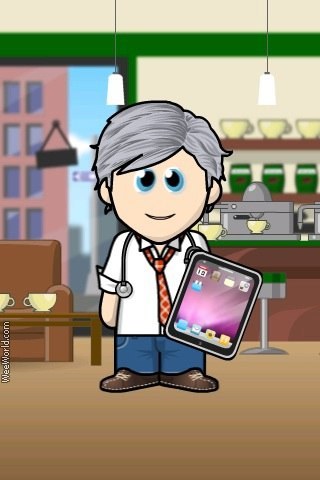Dec 18 2011
You Should Open a Shop – 10 Tricks of the TradeSeemed like a simple enough question.
Reddit user ‘expiredcheese’ had recently purchased a new TV.
I was in Best Buy looking at the televisions when I noticed the cheaper models were on non-HD channels while the larger more expensive televisions were on HD channels making the unaware customers lean more towards spending the extra hundred bucks…
They even gave me a hard time when I asked to see the cheaper TV on an HD channel! I got them to change it, I purchased the TV because of course it looked amazing on HD, but when I walked by that same section later, it was back on the non-HD channel!
So he asked this question on the Reddit Question site –
“Store Owners – What tricks do you use to get your customers to spend more money?”
Must have hit a nerve, as there has been a flood of responses from retailers and employees, fessing up to the tactics that they use to make us hand over more of our hard-earned than we intended. At last count there were more than 7000 replies!
Just in case you’re planning to open a shop, we at WILT have collated the 10 tricks of the trade you will need to know if you are to make your customers spend more money.
1. Take advantage of ‘the anchoring effect‘ – create a high price as the customer’s point of reference. Everything’s relative.
“Put a big ticket expensive item right at the front of the store. When your customers resist that temptation they will be subconsciously convinced they can “reward” themselves by buying less expensive discretionary items.”
“When I worked at Costco, I discovered that the reason we put big-ticket items (especially TVs) right at the entrance to the store was to activate a reward-response in the customers. They’d look at the TVs but quickly realize they weren’t going to buy them. By not buying a big-ticket item, the customer would be subconsciously convinced they could “reward” themselves by buying larger quantities of regular items.”
“During the presentation we’d always say we had 3 products. Average, agressive, and conservative(and always in that order). The average program would be just at the edge of what they could afford, the agressive would be WAY out of their price range, and the conservative program would be what we’re actually going to try and sell them on.”
“As the salesman, always start with luxury, then the quality, then the ‘affordable’. After seeing a mattress for $7000, being told that the actual most comfortable in the shop is the $16000 one, none will try and knock $100 of the price of the $800 model (even though there are cheaper ones)”
2. Guarantee you have the best price by having your own line.
Nearly every retailer can advertise “Find the same mattress for less and we’ll take 25% off”. Why? Because the manufacturer gives every major retailer their own specifically named “lines”.
I did some checking on this. Harvey Normans’s Enchant looks strikingly similar to Snooze’s Embrace, and they both are similar to Forty Wink’s Eclipse.
3. The price is just a number
Leave the “$” sign off price tags because the “$” sign reminds you it’s costing something, and not just the numbers.
Upmarket restaurants are prime examples. “Chardonay 54”
4. Finesse your store layout.
(image from Mizozo)
“At Ikea, you have to walk through the entire store before you find your way out. No windows, no working clocks, anything to keep the passing of time a secret to the customers.”
(Video – Ikea’s designs to make us buy more)
“I work for a grocery store, but I am not in any way in charge of these things.
When you enter, you are in produce. All the fresh fruit and vegetables laid out, and arranged to send you past the deli and into the bakery. That is where you encounter all the smells of the freshly baked bread and cookies. Then you are at the fresh seafood and meat counters, and only then do you get into the less appealing grocery items. You need to walk by all the fresh things before you get to the packaged goods.
The milk is in one corner of the store, the bread in the other, and the cash on the other side. You would no believe how many people I have seen at the cash who said they were just in for bread and milk, and wound up with a whole cart full of things that they had to walk past to get at the things they wanted.
Children’s cereal is placed next to the end of the aisle, where it is easily seen while walking past. Encourages children to ask for it, because they will see it even if their parents don’t turn down that aisle. Likewise, chocolate marketed to adults in on the higher shelves (about 5 feet off the ground), while that marketed to children is on the lower shelves.”
5. Make your products special.
“A friend of my girlfriend runs a pretty popular deli/eatery in Auckland, New Zealand. They’re famous for their pies, which are made fresh right there every day.
After being open for around 6 months, they noticed that the worst-selling pie was the Mexican one. They always had at least 2 or 3 left over at the end of the day.
So, for no other reason than a social experiment to see how easy people were to influence, he renamed the pie “The Lady Gaga”. Exactly the same ingredients, same location on the menu and the pie rack, just a different name.
The Lady Gaga pie now sells out first, every single day. They rarely have any left by 1pm, let alone by the time they close. He told me that when people come there for the first time, the pie they usually have is invariably the Lady Gaga.”
6.Use the word “free”.
If price reflects quality, what would you rather have – Two $6 pizzas, or a $12 pizza that comes with a bonus free $12 pizza.
“Seriously, it’s unbelievable what that word can achieve.
We own a pizza shop and when we had started off we didn’t have a “buy one, get one free offer”, but our prices were a lot lower than our competition. If somebody was to buy two pizzas from us, it would have cost them less than buying one pizza from somewhere else and getting the other one for “free”. We jacked up the prices and put a buy one, get one free offer. Now it costs the customers more to get two pizzas (one “free”) than it would have cost them before, but business went up SO quickly straight after we started that offer. It’s ridiculous.”
7. Hide the small and cheaper options
“I worked at an ice cream store that sold Small, Medium, and Large cups, with a very small “kiddie scoop”. We got an order from Corporate one day that we were not allowed to display the Small size cup, and we were not allowed to mention the kid’s scoop unless specifically asked.
The idea was that every customer, including little kids, would believe the Medium was the smallest option.”
8. Create scarcity
“I worked in sales at a store that was in liquidation. We would get a shipment of, say, 20 chairs, all the same model. When the store got busy I would carry one through the store while yelling to my coworker “we only have two left now!”. People snapped these up, thinking they were scarce.”
Have you head this salesman’s line.
“Two left, except for the two we put aside for employees, but technically if someone asks we have to sell it.” And the customer now thinks that he not only got a good deal, but also beat the system.
9. Increase demand for drinks – make the chips salty, the temperature hot, and the straws big
The cost of a draught been to the pub is only about 35c. You don’t need to sell many extra to increase your profits.
“I worked in a restaurant while attending college that would add extra salt to their “bar items” and would make hot entrees and apps additionally spicy during peek “bar hours”.”
“I managed a nightclub for about 2 years before I left my hometown to move closer to university. One of the things we used to do was turn off the AC to heat the place up. People packing the dancefloor would start to get really hot and decide to cool off by buying another drink.
On a slightly unrelated note but still interesting, it was a common practice to give any customer who complained at the bar what they wanted. This was because at the crowded bar the goal was to get out drinks as fast as you can. Our target was 1 drink/20 seconds at peak times. If someone came up to you and wanted to argue with you about a mistake that was made, you could easily be standing there arguing for 5 minutes. In the end, we lost less by giving away free drinks than by arguing our point.”
“My dad owns a college bar in Lincoln NE, and he uses bigger straws to get people to drink faster, and then buy more drinks. However, if youare Subway and you offer free refills, make the straws really small.”
10. The Sale You Have when you’re not having a sale.
If you pitching at the very exclusive end of the market, almost never have a sale. Otherwise, you should be having a sale all the time.
(Note that many of the strategies suggested below are against the Fair Trading act in Australia so of course would never happen here)
“I worked at a department store and we did this all the time- We’d have a sale and post signs everywhere indicating how much you are saving buying it on sale by showing the original price of the item displayed next to the sale price. However, the company had us post an inflated original price and pretend the “sale” price was a deal when it was actually what we were selling it for all along.”
“I worked at a store a couple years ago and the coupons my boss would put in the paper or in emails were actually just the orginal price. Customers would bring the coupon in thinking they were getting a deal but they weren’t. He liked to call them ‘price awareness’ coupons.”
“A good friend of mine works in a suit store, He told me how his company marks up the suits (lets say originally a suit costs 100$, they’ll bring up the price to say 300$) and then “lower” the price and say its a sale for 200$ or 250$. Another trick his store does is Buy one get one free. They mark up the price so that it’s actually 100$ more than if you were to purchase the suits individually at regular price.”
The sad thing is that even when we know all these tricks, we still fall for them every time.
Have fun doing the Christmas shopping!














 RSS - Posts
RSS - Posts

